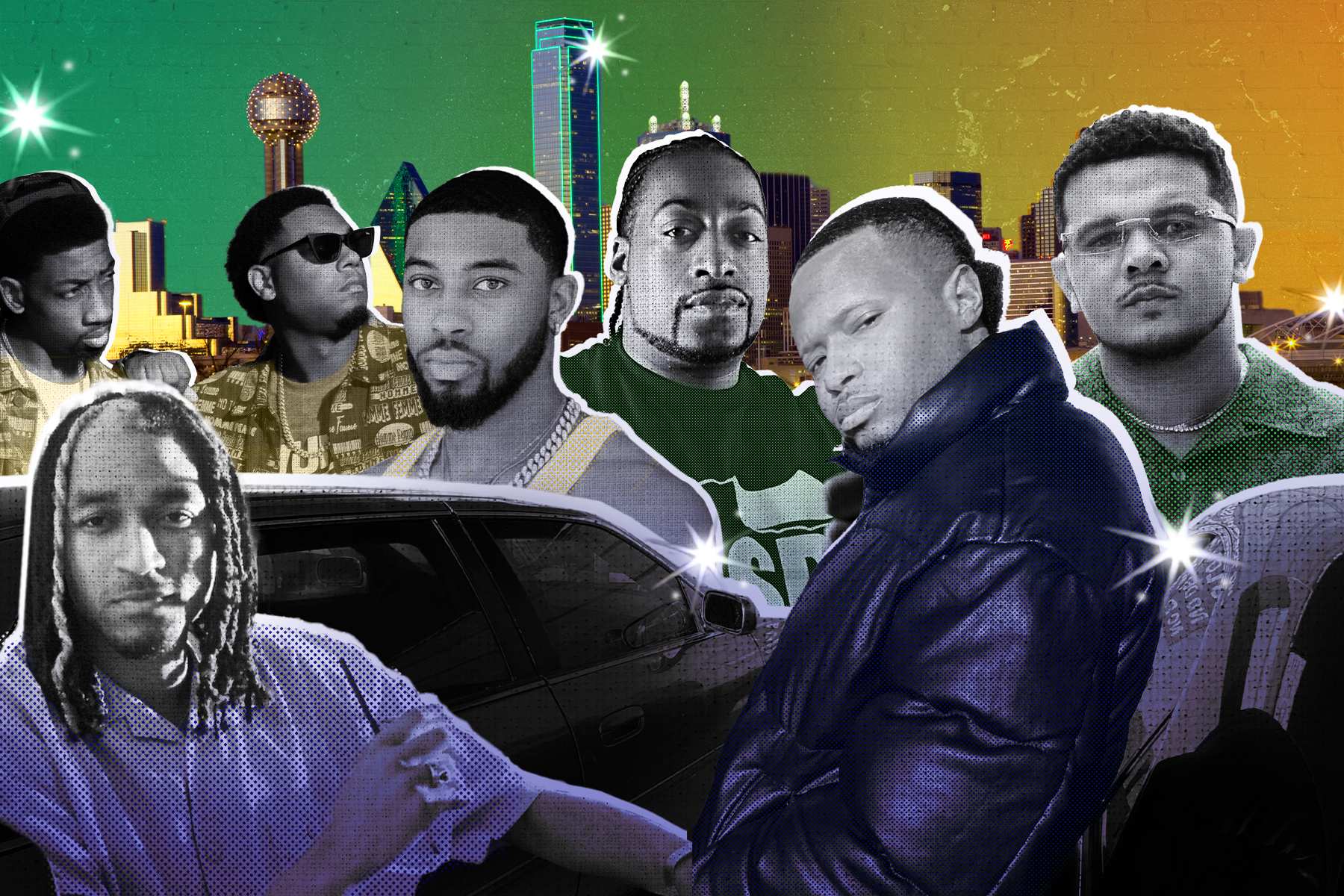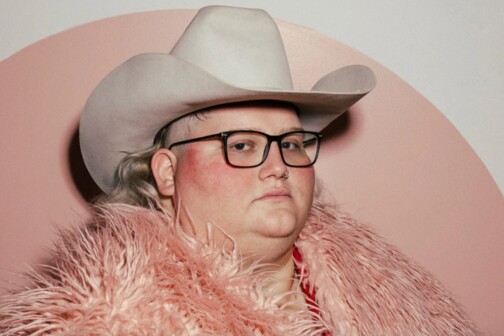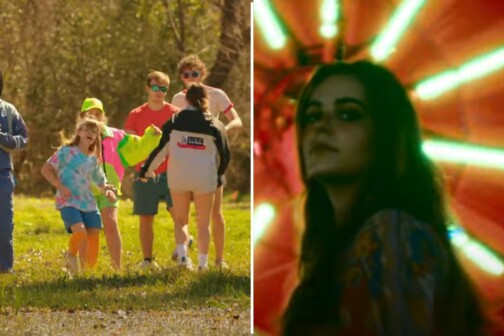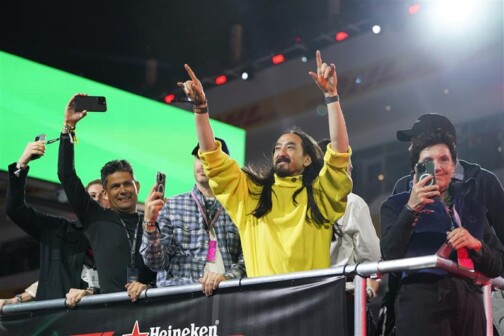Over the summer, Texas Monthly hired some of the state’s most avid critics, fans, and journalists of Texas hip-hop to create what the magazine termed “The 20 Essential Texas Rap Tracks.”
The editorial package features articles, essays, and blurbs about hip-hop’s origins and evolution in the Lone Star State, dating back to the early 1980s. I highly encourage every admirer of our state’s “country rap tunes” to read the writings of Kiana Fitzgerald, Paula Mejía, Matt Sonzala, Donnie Houston, Sama’an Ashrawi, Brandon Caldwell, Lance Scott Walker, Jessi Pereira, and Cat Cardenas. (I have the honor of knowing a few of the contributors on a personal and professional level, and their love for Texas is unmatched.)
However, the list leans predominantly Houston, the state’s might-as-well-be-official ambassador of Texas hip-hop to the greater United States. It makes sense. There is no other equivalent to J. Prince. There is no other group like (Port Arthur’s) UGK. DJ Screw and Swishahouse created and honed a new sound and Beyonce and Megan Thee Stallion have carried Houston with them all the way to the present day. The list of Houston’s contributions to hip-hop are endless. Thankfully journalist Lance Scott Walker wrote a book about it for University of Texas Press, which you should order and read. That saves me room in this introduction for the music below these words.
This playlist is a love letter to Dallas, specifically to the city’s hip-hop musicians who never received their flowers. (And still haven’t, frankly.) It is not ranked nor is it exhaustive, and it is certainly not clickbait. This playlist is compiled by the children of Dallas—the children who witnessed the ascent and decline of Dallas hip-hop in mainstream pop culture, the children who defended Dallas to their out-of-state (and Houston) friends, colleagues, and family members whose knowledge of Dallas hip-hop ranged between Vanilla Ice and Post Malone and little more. This is by the children who believe Dallas has a seat at the state’s hip-hop table. And these are the songs that prove it.
Whether you are a fresh-out-of-California transplant or multi-generational Dallasite, the list serves as reminder of Triple D’s hip-hop past, present, and future. I hope you discover a new song or artist. Listen to them over the holiday break. Feel free to email me with your thoughts and perspectives on the playlist (and if we should do another). See you in Paradise. —Taylor Crumpton
“Rollin on them Thangs” by Pimpsta (1994)
Pimpsta’s first single debuted on Southern airwaves courtesy radio legend DJ Greg Street. His sound fit firmly alongside the early ‘90s hip-hop underground that was pioneered in regional hotspots like Houston and Memphis. The single describes an afternoon at Bachman Lake Park, where old-school Cadillacs, low riders, and Regals cruised. The single’s video, filmed at the park, captured Dallas’ car culture of the ‘90s while paying homage to a cultural hub for the city’s Black and Latinx communities. In the years that followed, Pimpsta’s sound would influence Mr. Pookie and Mr. Lucci. —Jessi Pereira
“Texas” by Mr. Pookie and Mr. Lucci (2003)
Mr. Pookie introduced himself in 1999 with Tha Rippla, which gained regional notoriety on the strength of cult classics like “Crook for Life” and “Smoke One.” Four years later, he and his protégé, Mr. Lucci, would release My Life, with “Texas” as the album’s standout single. In it, the two lay claim to the Lone Star State’s status as a prominent player in the nation’s underground drug economy. “Texas” is filled with references to what you’d expect—the Alamo, the JFK assassination—but the song’s strength is in the chemistry between the duo that defined the sound of Dallas hip-hop at the end of the 20th century.—J.P.
“Southside Da Realist” by Big Tuck (2004)
There are few sounds more definitively Dallas than what you’ll hear in “Southside Da Realist.” The Triple D’s unofficial hymn features a thousand-part harmony of an invisible army of cicadas, a four-key melody sampling “Ambitionz Az a Ridah,” and, of course, the song’s namesake—which is also one of the most iconic hooks in Southern hip-hop. The track starts with little more than a half-second of silence before Cedric Lee Juan Tuck speaks the song’s name, but that brief quiet is all you’ll get when you hear this in the club. Dallasites join in unison for a synchronized shouting of the city’s anthem every time it’s played. This is the song that launched Dallas into mainstream pop culture in a way that hadn’t happened since Vanilla Ice’s “Ice Ice Baby” and the city will never forget it. —Rodney Blu
“Tussle” by Big Tuck and Tum Tum (2004)
In an era responsible for hip hop’s greatest nightclub fighting anthems, “Tussle” stands out for how instructional and illustrative its lyrics are. Willieboy’s adventurous, racing instrumentation slams square in the center of “bad” in the song’s opening line, a foreshadowing of how you’ll soon be encouraged to behave. What follows can be described as nothing short of inciting a riot, with every line in Big Tuck’s opening verse dripping with malicious intent. Tuck and Tum Tum trade verses in a way that seeks to one-up the violence of the bar that preceded it. It is one of the greatest and most realistic records of the voluntary—and eager!— hostility of after-hours venues in the 2000s.—R.B.
“Mr. Hit That” by T-Real Lee & Prince Rick (2009)
“Mr. Hit That” is a tribute to the song’s namesake, Kedrick “Mr. Hit Dat Hoe” Wilson. Wilson is one of the most prominent dancers of the Boogie era of the mid-2010s, the creator of many of the dance moves that defined those years. His nickname is not a reference to physical violence, but a symbol of Dallas idiosyncratic street slang: “hoe” represents a person, place, or thing, not necessarily a woman. Treal Lee and Prince Rick are paying homage to the originator. The song is a catchy, era-defining single that rattled throughout clubs and house parties across the state. “Mr. Hit That” honors the cultural pioneers of the Boogie and continues to inspire a new generation to prove that nobody can hit it like they can.—J.P.
“Oak Cliff (That’s My Hood)” by Young Nino, Hotboy Star (2009)
The track opens with menacing chords and a shark-in-the-water synth pattern that rings familiar if you’ve heard other incendiary tracks like “Knuck If You Buck” and “Head Bussa.” Like the aforementioned ass-whooping anthems, “Oak Cliff” introduces itself with shit-talking. Before the instruments crescendo, the beat goes silent except for the shouting: Oak Cliff, That’s My Hood, the rallying cry for North Texans through the mid-to-late aughts. To this day, some only know Dallas because of this song and its onslaught of threats and bravado, the relentless and recurring reminder of the place these rappers reside. “Oak Cliff” carved out a space in the cultural lexicon alongside some of the greatest, unnecessarily hostile recordings of the decade. It was impossible to do anything but join in. —R.B.
“Can’t Come Down” by A.Dd+ (2011)
From 2007 to 2012, independent blogs chronicled the hottest artists in the music industry. The blog era inspired rappers outside of industry hubs like Los Angeles and New York City, who suddenly found coverage in their hometowns. Locally, there was no one like A.Dd+, the dynamic duo of Slim Gravy and Paris Pershun. They represented Dallas in the era of Tumblr curation, where the right co-sign could land you on iPods and iPhones across the country. “Can’t Come Down,” the duo’s genre-blending single, featuring a sample of the French-Israeli singer Yael Naim’s “Toxic” and produced by BrainGaing X’Zavier, dominated the blogs upon its release. Its internet popularity led to a tour with Talib Kweli and elevated the local duo to beloved legends of the blog era that Dallas could proudly call their own.—J.P.
“Pimp” by Yung Nation (2012)
At the end of Boogie’s reign of pop culture in the early to mid 2010s, “Pimp” propelled the sound of stacked synth lines and twangy chants into another dimension and expanded its outreach to younger millennials. That generation was too young to experience the height of the Boogie scene in the clubs, instead experiencing the subgenre through grainy videos of dances posted on a Myspace of a mutual’s page. In the early days of viral videos on social media, idiosyncratic boogie dancers like Whiteboy Boogie highlighted its expansion to a more suburban consumer. “Pimp” evolved the electronic elements and core tenets of Dallas Boogie and transformed it into an intoxicating song that secured the duo a spot on Drake’s Club Paradise Tour. Yung Nation, the torchbearers of Boogie, introduced the Dallas sound into modern virality, a stepping stone for today’s TikTok dance trends.—J.P.
“Ode 2 The Skyline” by Outlaw Mel (2020)
Outlaw Mel is the only permanent voice in The Outfit, TX, a three-piece, turned two-piece, turned part-time project belonging to the now mostly solo artist, Mel. The Outfit, TX’s music engineered the unifying, bombastic culture that rose to prominence in the decade post-millennium and the Club Blue-turned-Cirque era energy, which was many a DISD student’s first taste of the nightlife. “Ode 2 The Skyline” takes listeners through a tour of Dallas that isn’t usually shown in Cowboys or Mavericks b-roll. The blonde beehives, audacious belt buckles, and ten-gallon hats that populate our city’s brochures and marketing materials are all absent in Mel’s interpretation of North Texas, replaced with objects and scenes that are more prominent south, east, and west of the I-30 racial segregator. Outlaw Mel’s Dallas is slabbed-up old-schools, beauty salons, bazaars (our Black southern equivalent to the Slauson swap meet), and the major streets and intersections that are the stomping grounds and cultural centers of the majority of the city’s non-White residents.—R.B.
“Freaknik” by Coach Tev, SighRocSpliff, Devy Stonez and Cush With A C (2020)
This is what’s next. Four of the Dallas hip-hop underground’s most celebrated and anticipated artists combined their unique approach to the genre atop production that is more far-left than anything they individually occupy, forcing elite performances from each spitter. “Freaknik” is the best example of what the future of Dallas hip-hop sounds like. Not just in its instrumentation and verses, but their individual powers combining to challenge and urge greatness from one another. That and, of course, rattling bass and a hook that’s easy to remember: Dallas hip-hop’s secret sauce.—R.B.






